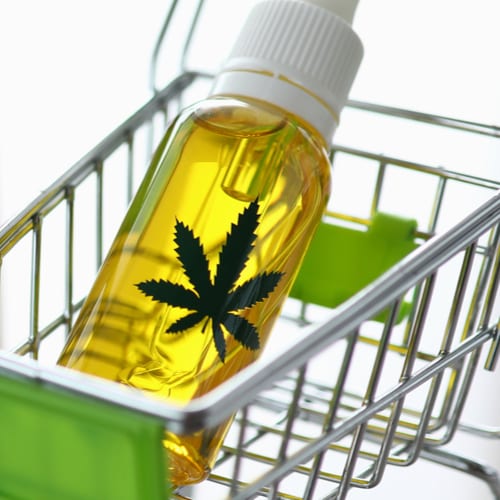
Another week of deliberation and progressions for cannabis as more states navigate the new waters of legality and other venture toward more agricultural routes. Some businesses saw an ugly side of the industry, however, as the legal grey area has been pursued by many lawmakers. Read more on cannabis news from this past week.
Hawai’i Issues License for Industrial Hemp Pilot Program
Since the culmination of the state’s Industrial Hemp Pilot Program in April, 10 applications have been received. The program will allow applicants who have 10 acres to grow the hemp seed variety, Yuma, imported from China.
“Hawaii’s first licensed hemp growers will help to demonstrate the real potential of the industrial hemp industry. We look forward to the entrepreneurial spirit that will help to invigorate and strengthen agriculture across the state.”
— Gov. David Ige, via Hawaii News Now
Hawai’i’s Department of Agriculture issued the state’s first 3 licenses, all valid for two years as long as the license holder remains compliant with the program rules, including submission of annual fees of $250, plus a $2 per acre assessment. The time from planting to harvest is estimated to be anywhere from three to six months.
“The potential here in Hawaii is just enormous when you look at 25,000 different products … made from this miracle plant.”
New York Encourages Banks to Work With Cannabis Industry
As a stronger push to alleviate some issues in the cannabis industry, top financial officials in New York joined the regulators and business leaders in efforts to do just that. The group pushes for banks to work with the legal cannabis industry. Despite the boom of the all-cash business, banking institutions fear working with them due to the possibility of repercussions working with a federally illegal business.
Earlier this month, New York’s Department of Financial Services wrote a 10-page memo directed to the chief executive officers of banking institutions. The memo was guidance to state-banks and credit unions to provide access to financial services. Under the guidance of the new memo, institutions will not be sanctioned if they remain compliant with guidance found in the famous 2013 DOJ Cole Memos, the 2014 Financial, Crimes Enforcement Network, as well as New York laws and regulations.
The memo also noted the safety risk not working with these businesses cause, such as:
- “Forcing medical marijuana and industrial hemp businesses to operate solely with cash creates a public safety issue, as cash-intensive businesses and their suppliers, employees and customers become targets for criminals.”
- “Large amounts of cash distributed outside the regulated banking system is unacceptable and creates risks to the companies and their employees and business partners … New York must act.”
Oklahoma Governor Criticized for Current Cannabis Laws
After Oklahoma’s near split decisions to legalize medical-use cannabis, the specifics of the decision have caused some backlash for Governor Mary Fallin. The MMJ industry in the state would be relatively open with no explicit license caps or restrictions on who qualifies for the MMJ program, ultimately leaving it to physician’s discretion. Fallin had stated before the cannabis bill’s approval that she would “convene a special session.” She declined to the session, however, after consulting with legislative leaders, who cited an “unwillingness to tackle the issue before November elections.” Legislators and a spokesman from Fallin’s office stated the the idea of returning to address such a new and complex industry so soon is simply unrealistic. Others see the lack of clarity as a “failure of leadership”.
This past Monday at a public forum, a coalition of medical providers called for a ban on smokable cannabis in addition to requiring a pharmacist at each retail dispensary location. The forum discussed the current draft rules but the state won’t be reviewing applications until at least 60 days after the date of legalization. Here are some key draft rules:
- Individuals or businesses could hold grower, processing and dispensary licenses.
- The property line of an MMJ business must be at least 1,000 feet from a school or church entrance.
- Medical marijuana products would not be permitted to have a THC content of more than 12%. Mature plants would not have a THC content of more than 20%.
- A single transaction by a dispensary with a patient or caregiver would be limited to 3 ounces of marijuana, 1 ounce of marijuana concentrate, and/or 72 ounces of MMJ products.
- Medical marijuana could be sold in smokable form but with the same restrictions on public consumption as with tobacco.
- Commercial growers would be allowed to cultivate marijuana only indoors.
While others argue about the openness of the program, many see it as a triumph for such a heavy Christian state to have the most laxed medical cannabis program in the country. There are activists in the state currently petitioning to legalize recreational cannabis.
Canopy Growths Reach Grows
According to a press release, Canopy Growth Corporation is primed to acquire Hiku Brands, a combination of two cannabis firms, DOJA Cannabis and Tokyo Smoke. Under terms of the deal, Hiku shareholders will receive 0.046 of a Canopy Growth share in exchange for each common share of Hiku. That’s equal to 1.91 Canadian dollars ($1.46) per Hiku share.
The Canopy/Hiku deal overrides a previous agreement Hiku started with Weed MD in May. The deal, a merger, included a “right to match” trigger that Weed MD opted to waive. In order to cancel the deal, Hiku was on the hook to pay Weed MD $10 million. Canadian cannabis powerhouse, Canopy Growth, covered the cost in the form of a promissory note.
Before a decision is made, two-thirds of Hiku’s shareholders must approve the agreement.
Cannabis Hotels in Canada
Since their news of federal legalization Canada, the country has been moving fast to make sure everything is ready for legal recreational sales on October 17. The most recent move has been opening the door for the tourism there are bound to get as a result of the legislation. Prince Edward Island will allow recreational cannabis consumption in guest rooms of hotels, motels, and bed and breakfasts on the island.
The industry wishes to capitalize on cannabis tourism on the island that hosts about 1.5 million visitors a year. Hotel operators “may allow or prohibit consumption of cannabis by smoking or any other means” but still adhere to the rules of the Smoke-free Places Act.
“By granting business owners the authority to decide if adult recreational cannabis may be consumed in their rental units and/or any areas they may have designated on their property, it satisfies both the need to remove cannabis use from the public (where children or youth may be present) and to provide the flexibility for operators to accommodate year-round cannabis tourism,” said Shaman Ferraro, CEO and founder of Gocanna, a Charlottetown-based marijuana tourism company.
Caribbean Nations Considering Federal Legalization
Weeks after Canada’s legalization and Mexican administration aimed to end prohibition, another part of the world is growing even closer to cannabis. The Caribbean Community (CARICOM), group of nations comprising of Bahamas, Barbados, Haiti, and Jamaica to note a few, recommended rescheduling of cannabis. The CARICOM session decided:
“Heads of Government welcomed the Report of the Regional Commission on Marijuana. They noted its findings, conclusions and recommendations in particular with respect to human and religious rights; the social and developmental impact of use among adolescents; the economic benefits to be derived and issues related to its classification…“Heads of Government recognized that the current classification of marijuana as an illicit drug presented a challenge in the conduct of research to fully understand and ascertain the medicinal benefits to be derived. They agreed that action should be taken at the national level by the relevant authorities to review marijuana’s current status with a view to reclassification taking into account all international obligations. They also expressed concern about the effect of marijuana use on young persons given the conclusive evidence that existed.”
The group wishes to take the same stance as Canada, treating cannabis much like alcohol. They also wish for the decision of regulation to be left to specific nations. The decision comes as more countries see more harm coming to their economy pursuing cannabis as an illicit drug despite its vast medicinal and agricultural purposes.
“The medical and scientific evidence is clear that marijuana has substantial value. Thousands of people are being imprisoned especially the most vulnerable and most marginalized in the region.”
— Prof. Rose-Marie Belle Antoine, Chair of CARICOM’s Regional Marijuana Commission, via The Guardian
Written by: Joycelin Arnold





